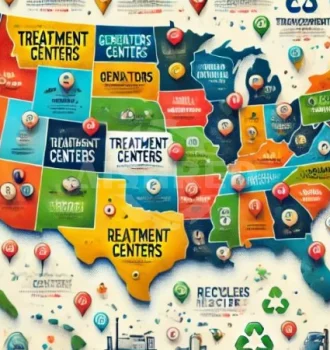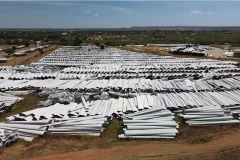
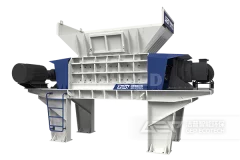
Wind power, as a kind of green energy, is developing rapidly worldwide in the 21st century. At the same time, the material of wind turbine blades has become more and more diversified, mainly including long fiber composites, glass fiber composites and carbon fiber composites. In the field of new energy development, composite materials are mainly used to manufacture wind turbine blades. However, with the passage of time, these wind blades have gradually entered the phase of elimination and replacement.Due to the large size and heavy weight of wind turbine blades, their disposal is indeed a difficult project. Even if they are partially cut in the early stage, they still need to be shredded before they can be disposed of in the next step. In the choice of shredding equipment, the twin-shaft shredder can meet the shredding needs of wind turbine blades with high quality. First of all, the wind turbine blades need to be cut to a suitable size, and then the material is fed into the shredding chamber through the
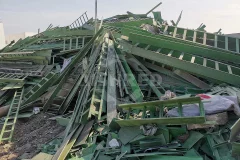
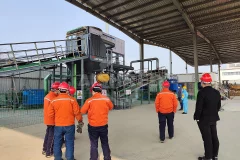
In today's era of focusing on sustainable development, the effective use of resources and recycling has become a crucial issue. And the emergence of disposable recyclable fiber glass shredder undoubtedly provides a powerful means to solve the problem of recycling of fiber glass products.As a material with excellent performance, fiber glass is widely used in various fields. However, with the passage of time and product renewal, a large number of fiber glass products are facing the fate of elimination and abandonment. These discarded fiber glass products, if not properly handled and recycled, will not only cause a waste of resources, but also cause a certain amount of pollution to the environment. The birth of the fiberglass shredder is like a heroic warrior, stepping forward to take up the heavy responsibility of transforming these waste fiberglass products back into usable resources. Through the unique shredding principle and process, it breaks down the waste fiberglass products into fine particles so that
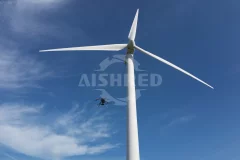

As wind power technology has evolved, the length of wind turbine blades has gradually grown to capture more wind energy. Back in 2014, researchers in the UK surveyed more than 500 wind farms and found that older WTGs built in the 1990s were still producing 3/4 of their power after 19 years. They concluded that most WTGs should be able to run longer than expected, around 25 years before needing to be upgraded.However, as we all know, at some point even the best things must come to an end. While the key to moving the wind industry forward is to continue to reap the benefits of clean energy, there is also a need to consider what to do with the units when they are retired. While the number of retired WTGs worldwide is still low, it will continue to grow as the wind industry expands on a large scale.Fortunately, most WTG components are recyclable, including foundations, towers, gearboxes and generators. WTG blades, however, are difficult to recycle due to their composition.Most WTG blades are composed of
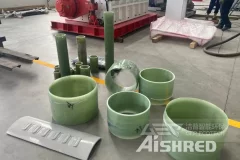
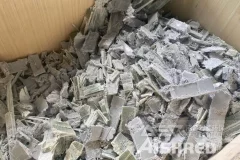
How to Select Waste FRP Pipe Shredder?
2023-02-06FRP(Fiber-glass Reinforced Plastics) is a widely used product in industry now. It can solve the problem of environmental pollution caused by plastic products. At the same time, it has high strength, light weight, corrosion resistance, strong temperature adaptability and low cost. It can be used to manufacture various pipes, containers and other products, and use various waste gas, sewage discharge pipes, de-sulfurization towers, absorption towers and so on. As FRP wastes need to be incinerated, unqualified FRP pipes or containers during production or waste FRP products need to be sent to special incineration plants, cement plants and other industrial waste disposal sites for professional disposal. However, due to the large space occupied by products such as FRP pipes and containers and the high cost of direct transportation, it is necessary to crush and reduce the volume of these products before they are sent to the disposal center. FRP has high hardness and strength. We recommend to use a double shaft
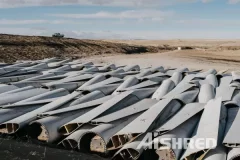
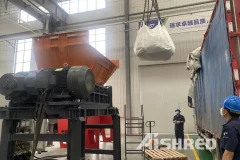
Wind Turbine Blade Shredder for Sale
2022-08-25Wind power is a clean energy source and people love it (although the energy is very unstable, but people have come up with good solutions), but what to do with the scrapped wind turbine blades is a headache. It has been recognized that it is not a good way to send end-of-life wind blades to the landfill, because they take up a lot of space and their main component is fiberglass they are particularly difficult to decompose under natural conditions. Now, we can stop doing that. Using AIShred's industrial waste shredder, wind blades are shredded, which can be used as raw materials for recycled products, or added to cement clinker to increase cement strength. AIShred has different models and specifications of industrial shredders, and can design special blades according to your material characteristics and input and output requirements. We also provide conveying, sorting, packing and other equipment, which can help you build a high-efficiency industrial waste shredding/recycling production line. If you are also
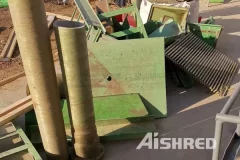

FRP (fiberglass reinforced plastics) products have many advantages, such as high hardness, light weight and corrosion resistance. They are favored by many industrial products and are widely used in chemical industry, engineering, construction, electrical, communication, railway, automobile and other fields. As FRP products gradually reach the life cycle, recycling of waste FRP is becoming a new industry. What equipment is needed to deal with waste FRP? There are generally three directions for the recovery and regeneration of FRP, including chemical pyrolysis, shredding regeneration and energy recovery. First, shredding and regeneration. It is to use the shredder to shred the recycled waste FRP, and sell the FRP fines directly as raw materials, or turn them into FRP, or use them for processing composite materials. Simple and fast operation, typical short, flat and fast business model. Second, energy recovery. This is simpler. You can simply shred the waste FRP, directly package it and sell it to cement plants
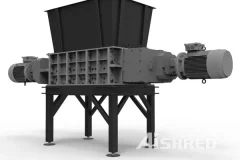
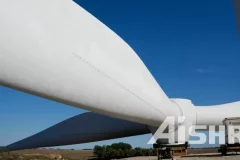
Fiberglass, Fibre-reinforced plastic(FRP) is one of the most commonly used composite materials in the world today, with a wide range of uses, from wind turbine blades to boats and airplanes, to various containers and support components, fiberglass is everywhere. The main task of disposing of fiberglass is to avoid it being landfilled, because it is particularly difficult to degrade. Now, there are two better ways to recycle fiberglass as I know, the first is co-processing in cement kilns, and the second is to process it into recycled products. Co-processing of Fiberglass Waste in Cement KilnThere are many advantages in the treatment of fiberglass waste in cement kilns. One is that the energy in the waste can be recovered and energy consumption is reduced. The other is that fiber materials, silicon, alumina in the fiberglass can not only reduce the consumption of raw materials, but also improve the quality of cement.Material Recycling of Fiberglass Waste for new ProductsNow a new way of recycling fiberglass
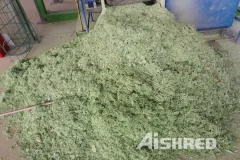
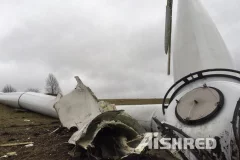
Fiberglass Shredder Machine for Sale
2022-05-16Fiberglass is a composite material based on quartz sand. It is used for the manufacture of building materials, as well as various high-tech and durable lightweight structures. In real life, fiberglass means a glass fiber-reinforced polymer (FRP or GFRP). In modern life, glassfiber is widely used for packaging, covering, structure and other purposes. Accordingly, end-of-life fiberglass components must be disposed of correctly. At present, mechanical shredding are usually used, and the resulting shreded products can be used as fillers in tar, cement or other mixtures, or burned for energy. Fiberglass Shredder MachineGlassfiber is strong and has many kinds, you need a professional equipment to handle it. The low-speed, high-torque, heavy duty dual-shaft shearing shredder can shred glass fibers to a size of about 10cm (the specific size varies with the material), and the single-shaft shredder can shred the material to a smaller size. In early 2022, AIShred delivered a fully automatic Fiberglass two stage



